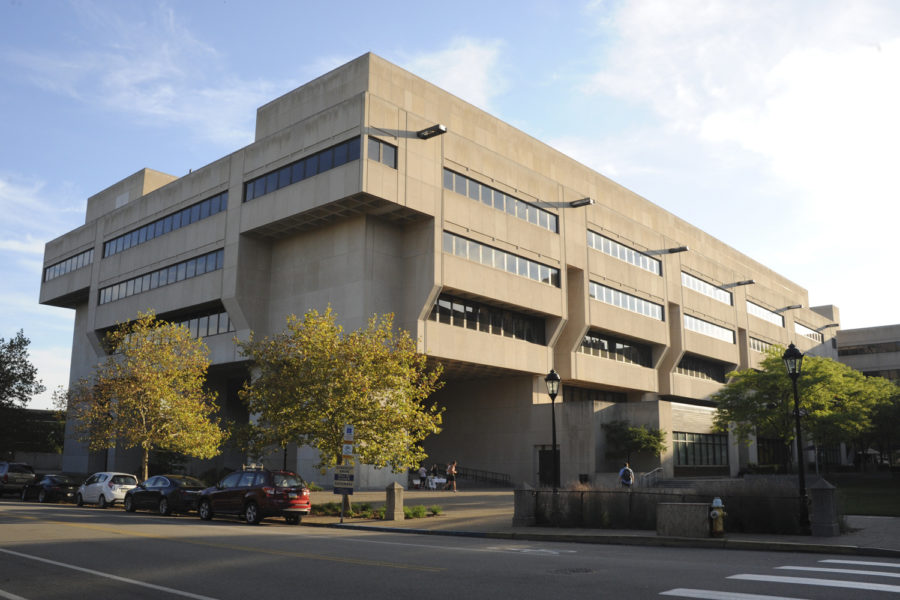As of Friday, March 21, Pitt’s Graduate School of Public and International Affairs changed its name to the School of Public and International Affairs, reflecting the program’s new acceptance of undergraduate students into the program.
Undergraduate students will now be able to pursue a Bachelor of Arts in public policy starting in the fall of 2025. This decision comes after the school launched undergraduate minors in public policy and global policy in 2023 and 2024.
The bachelor’s in public policy is a 42-credit degree, excluding economics and statistics prerequisites. Undergraduate students can also pursue a nonprofit management certificate or apply for the Policy and Social Impact Fellows program.
Pitt’s GSPIA is ranked in the U.S. National Reports as the 34th-best public affairs program. Despite the strong ranking, Erica Palmer, associate professor of international affairs and previous associate dean of GSPIA, said several factors contributed to the name change, with decreasing enrollment being one of them.
“We felt like the name had to evolve,” Palmer said. “We saw a decline in graduate enrollment, which we are trying to address in a lot of ways. But at the same time, we saw this increase in interest from undergraduates in the curriculum we would offer.”
Over the past decade, graduate enrollment decreased from 405 students in the fall of 2015 to 247 students in the fall of 2024. Palmer noted that national graduate school enrollment numbers have been declining in recent years for a number of reasons, including post-pandemic changes, decreasing undergraduate enrollment numbers and national birth rate declines.
Kamran Hakiman, a doctoral candidate in SPIA, believes that GSPIA enrollment rates declined because of technological developments, including AI, and recent cuts to government jobs.
“[Public policy has] a pretty historically tight job market, which would lower the incentive to get additional training,” Hakiman said. “I think jobs for those degrees will look very different [because] AI is going to disrupt not only academia in general, but also [the] government.”
Despite a seemingly shaky job market, Palmer describes Pitt’s undergrads as “engaged” and “passionate” about public policy, so she is eager to welcome them into the program this fall.
“I’m excited about that chance to engage with them more,” Palmer said. “Undergraduates are eager to tackle big problems. They are eager to make a difference, and it is our hope that we give them the tools, knowledge, and create pathways for them to take that passion and launch it into a future career.”
Palmer describes the inclusion of undergraduate students in the past couple of years as “intentional.” To accommodate younger students, the SPIA is making sure the curriculum is undergraduate-appropriate.
“We do have faculty with undergraduate teaching experience, and we’ve hired [more] over the last couple of years,” Palmer said. “We want to have folks that are going to offer undergraduate students a curriculum and a classroom experience that is really engaged and interdisciplinary.”
Some graduate students are hopeful about the change. According to Rachelle Haynik, a Ph.D. student in SPIA, the incorporation of undergraduate students will further develop their program and is “great for personal and global reasons.”
“First, as a graduate worker, this means more opportunities to be a TA,” Haynik said. “Second, I think it’s excellent that [undergraduate] students will be able to develop their interests and skills in public service before entering graduate school.”
Haynik majored in political science as an undergraduate at Pitt and said she wished a public policy degree existed at that time, because she would have majored in it. Palmer said that 30 students have already declared a minor in public policy since it was introduced in the fall of 2023, so she is excited to see how many students declare majors in it.
According to Hakiman, adding undergraduates is “healthy” in a graduate program. He thinks that introducing students to public policy during their undergraduate career could be beneficial to the school as a whole.
“I think for undergraduates to study public policy as a different field of study that has somewhat different problems makes sense,” Hakiman said. “I think it’s also strategically [better] to have a wider [amount of] people in the school.”


